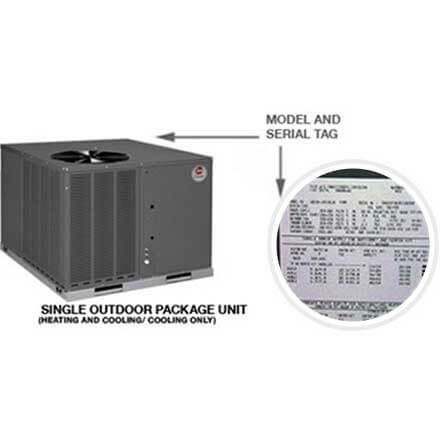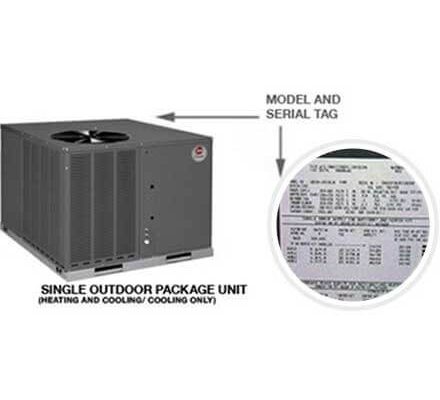
Here’s the thing: HVAC systems like Rheem are often installed and owned by landlords, which raises an important point about who gets to handle the registration, warranty claims, and ongoing maintenance. Think of it like a car that your landlord bought and lets you drive—you can’t exactly call the dealership and register it yourself without the owner’s permission. Let me explain how this works in the world of Rheem HVAC systems and what tenants should keep in mind.
Understanding HVAC System Ownership Between Landlords and Tenants
When a Rheem HVAC system is installed in a rental property, the system usually belongs to the landlord. That means the landlord purchased, installed, and maintains the unit, much like a homeowner owns their heating and cooling setup. As a tenant, you get the comfort of the system but not necessarily the paperwork or control over it.
Ownership matters a lot because it determines who can register the system’s warranty and who is responsible if the HVAC needs repairs. Rheem’s warranty registration typically requires the purchaser’s information, which in this case is the landlord. That’s why tenants often don’t have direct access to register the HVAC system themselves.
Here’s a quick way to think about it: The landlord is the official “owner” and the primary contact for Rheem. Tenants, on the other hand, are more like “users” who rely on the landlord to handle the registration, repairs, and any warranty issues. This setup protects both parties but can create confusion if you want to register or service the unit yourself.
Why Registering a Rheem HVAC System Matters
You might wonder, *why bother registering the system at all?* After all, if it’s working fine, why involve yourself? Well, registering your HVAC system with Rheem activates the warranty and ensures you’re covered for parts replacements and repairs under specific conditions.
Registration provides several benefits: it documents the purchase date, confirms the unit’s model and serial number, and makes warranty claims easier if something goes wrong. Without registration, you risk missing out on coverage or facing delays.
For landlords, registering the system helps keep track of maintenance and warranty periods. For tenants, a registered system means prompt attention if the HVAC breaks down during your lease. However, since landlords typically handle registration, tenants usually need to notify them if they want to ensure the system is properly covered.
What Happens If the System Isn’t Registered?
Without registration, warranty claims can become complicated or even void. If the HVAC system breaks down and isn’t covered under warranty, repairs can become costly. For tenants, this means relying fully on the landlord to fix problems, and sometimes landlords may delay or avoid repairs if warranty coverage isn’t in place.
Don’t think of registration as just paperwork—it can affect how quickly and smoothly HVAC problems get fixed. So, even if you aren’t the one registering the system, it’s wise to check in with your landlord to confirm whether the Rheem HVAC has been registered.
Can Tenants Register Rheem HVAC Units Themselves?
Now, here’s the tricky part: Can tenants actually register the Rheem HVAC systems their landlord bought? The short answer is: Usually, no—not without the landlord’s cooperation.
Because Rheem requires the purchaser’s information for registration, a tenant who didn’t buy or install the unit typically *can’t* register it independently. The registration process asks for proof of purchase details, like the retailer or installer, which the tenant doesn’t have.
Here’s a realistic example: Say you move into a rental and want to make sure the HVAC is covered. If you try to register the unit yourself, Rheem’s system will likely reject the registration because the purchase record doesn’t match your name or address. That doesn’t mean the system isn’t registered; it just means the tenant isn’t the registered owner.
When Can Tenants Register Rheem HVAC Systems?
There are exceptions. If the landlord provides you with the purchase receipt, model details, and explicitly authorizes you as the owner’s agent, you may be able to register the system on their behalf. Some landlords might hand over this responsibility, especially if they’re hands-off with maintenance.
Alternatively, if the rental agreement transfers ownership of appliances like HVAC systems to the tenant (not common but possible), then you’d be free to register it yourself. Realistically, this situation usually comes up only when tenants buy a unit after lease ends or in rent-to-own scenarios.
Here’s the takeaway: Without landlord approval or transfer of ownership, tenants can’t register Rheem HVAC systems bought by landlords.
How Tenants Can Ensure Proper HVAC Maintenance and Warranty Coverage
Even though tenants can’t always register the HVAC system, they can play an active role in making sure it’s maintained and protected. The best move? Open a clear line of communication with your landlord about the HVAC system.
Here are a few steps tenants can take:
- Ask for proof of registration: Check if the landlord has registered the Rheem system and has warranty documents ready.
- Request maintenance records: See if routine servicing, like filter changes and system inspections, is up to date.
- Notify issues promptly: If you notice strange noises, uneven temperatures, or the unit stops working, inform your landlord immediately.
- Suggest regular checks: Recommend professional HVAC inspections at least once a year to catch issues early.
You don’t need to be the HVAC expert here. But knowing that the system is registered and serviced properly gives you peace of mind—and helps avoid surprise breakdowns that could turn your cozy place into a sauna or freezer.
What About Remote Controls and Syncing with Rheem HVAC Systems?
Sometimes, tenants might wonder if they can register or sync the **remote control** or thermostat with their Rheem HVAC system. This is related but slightly different from registering the entire unit.
Most Rheem systems come with smart thermostats or remotes that allow syncing or resetting, which tenants can usually handle themselves without owner permission. You can reset the remote, change batteries, or even pair it with the unit to manage temperature settings.
However, the overall warranty registration of the HVAC system itself is a separate matter. Syncing your remote doesn’t register the system or activate warranty coverage. It just makes the unit respond to your commands.
If your remote isn’t working, troubleshooting steps like resetting or replacing the battery might help. But for warranty or service issues, the landlord remains the point of contact.
Alternatives for Tenants If They Can’t Register
Here’s a practical question: What if your landlord isn’t responsive or refuses to register the Rheem system? What options do tenants have?
Honestly, your choices are somewhat limited because you don’t legally own the system. However, you can:
- Request written confirmation: Ask your landlord in writing about warranty and registration status.
- Refer to your lease agreement: Some leases mention who is responsible for HVAC maintenance and repairs.
- Pay for professional inspections: Sometimes tenants hire HVAC pros for system checkups and share reports with landlords.
- Negotiate lease terms: If heating or cooling is unreliable, you might negotiate rent adjustments or ask for repairs.
If the HVAC breaks down and the landlord refuses to fix it, local tenant laws may protect you—but these rules vary by state and city, so do check your area’s regulations.
Wrapping It Up: Tenant Registration of Rheem HVAC Systems
So, can tenants register Rheem HVAC systems purchased by landlords? The honest answer is probably not—unless the landlord explicitly allows it or transfers ownership. Registration is closely tied to who bought and owns the unit, which is typically the landlord.
That said, tenants don’t have to feel powerless. By staying communicative, asking for proof of registration, and reporting maintenance issues early, you can help keep your Rheem HVAC system running smoothly. And yes, syncing your remote or resetting it is usually all on you, no landlord permission needed.
Here’s the big picture: Think of the Rheem system as your landlord’s responsibility—but your comfort depends on good communication and timely maintenance. Keep the conversation open, and your HVAC should keep doing its job, climate-control style, without drama.
